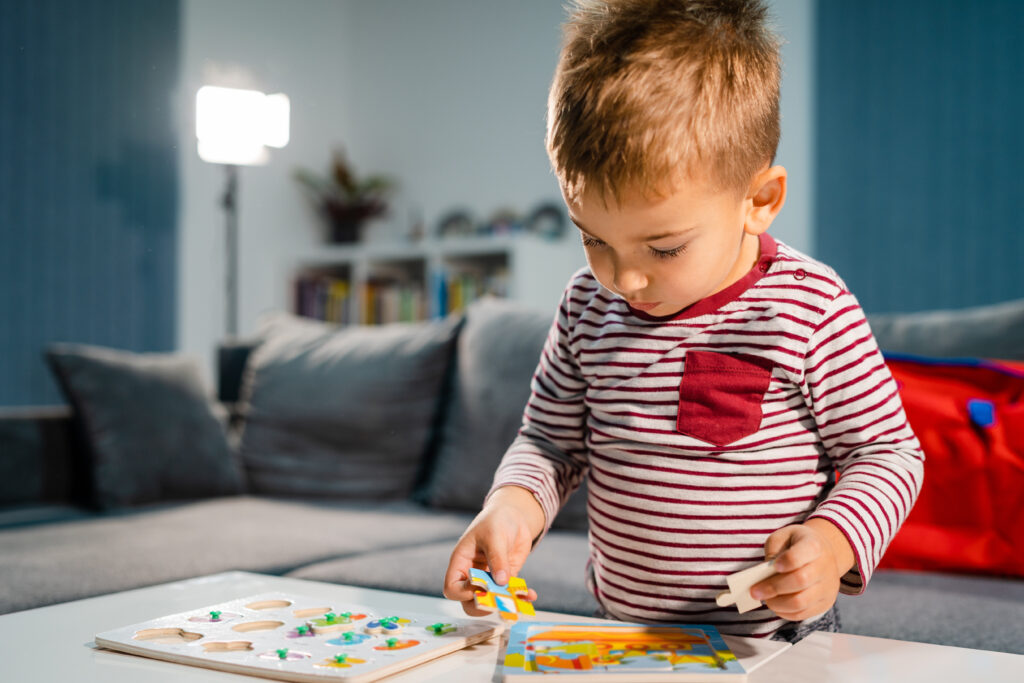Purpose of Puzzles

Puzzles can be a great activity for individuals of many different ages. But, did you know that puzzles have a purpose and support many areas of your child’s development?
Areas of Development
Puzzles can support areas of your child’s cognitive development. The cognitive skills puzzles address include spatial awareness, problem-solving, focus, and working memory. Use puzzles to practice, develop, and refine these skills. Additionally, puzzles help teach the child about choices and strategy. Kids can also work to develop speech through play with puzzles. With the support of an adult, puzzles can be used to support expanding your child’s expressive and receptive language skills. Fine motor skills of grasping and hand-eye coordination can also be supported through play with puzzles. Puzzles require the child to turn, flip, and slide the pieces, which can help to support dexterity and finger strength. Puzzle play can help nurture areas of emotional development, including persistence and frustration tolerance.
Purpose of Puzzles – Tips for Teaching
Puzzles can support development for a wide range of ages. Therefore, it is helpful to provide your child with the appropriate challenge, not too easy and not too hard.
- Select a puzzle that is appropriate for your child’s development and skill level. Ensure that your child can be successful, then increase the challenge from there.
- Show your child a demonstration of how to put the pieces together.
- Describe the piece and what you see on the piece to your child to promote language development and observation skills.
- Sort the pieces by color to practice color skills and categorize items that look alike.
- Cue your child to turn or spin the piece around and try all the different sides of the piece.
- Encourage your child with praise when they get the pieces together.
- Simplify it by giving them just a few pieces at a time or giving them the puzzle already partially together.
